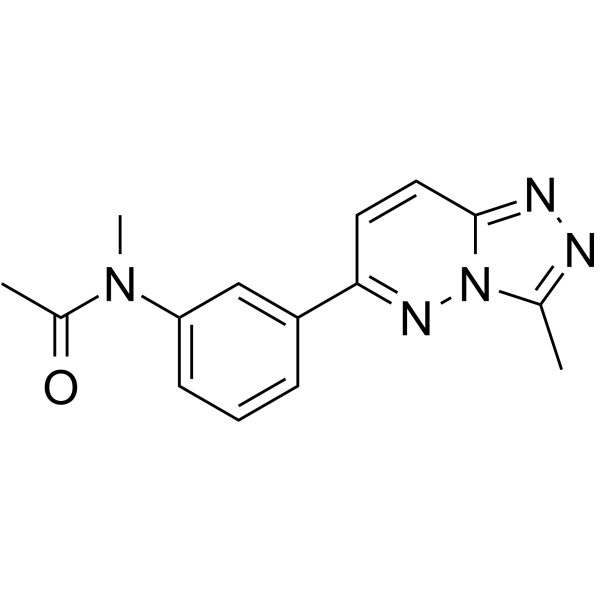
Lin281632
CAS No. 108825-65-6
Lin281632( Lin28 1632 | Lin-28 1632 | Lin 28 163 )
Catalog No. M27896 CAS No. 108825-65-6
Lin281632 is an inhibitor of RNA binding protein Lin28 and bromodomain. Lin281632 promotes mESC differentiation.
Purity : >98% (HPLC)
 COA
COA
 Datasheet
Datasheet
 HNMR
HNMR
 HPLC
HPLC
 MSDS
MSDS
 Handing Instructions
Handing Instructions
| Size | Price / USD | Stock | Quantity |
| 5MG | 80 | Get Quote |


|
| 10MG | 140 | Get Quote |


|
| 25MG | 295 | Get Quote |


|
| 50MG | 507 | Get Quote |


|
| 100MG | 714 | Get Quote |


|
| 500MG | 1503 | Get Quote |


|
| 1G | Get Quote | Get Quote |


|
Biological Information
-
Product NameLin281632
-
NoteResearch use only, not for human use.
-
Brief DescriptionLin281632 is an inhibitor of RNA binding protein Lin28 and bromodomain. Lin281632 promotes mESC differentiation.
-
DescriptionLin281632 is an inhibitor of RNA binding protein Lin28 and bromodomain. Lin281632 promotes mESC differentiation.
-
In Vitro——
-
In Vivo——
-
SynonymsLin28 1632 | Lin-28 1632 | Lin 28 163
-
PathwayOthers
-
TargetOther Targets
-
Recptormannitol-1-phosphate dehydrogenase (M1PDH)
-
Research Area——
-
Indication——
Chemical Information
-
CAS Number108825-65-6
-
Formula Weight281.319
-
Molecular FormulaC15H15N5O
-
Purity>98% (HPLC)
-
SolubilityIn Vitro:?DMSO : 50 mg/mL (177.74 mM)
-
SMILESCN(C(C)=O)c1cccc(c1)-c1ccc2nnc(C)n2n1
-
Chemical Name——
Shipping & Storage Information
-
Storage(-20℃)
-
ShippingWith Ice Pack
-
Stability≥ 2 years
Reference
1.Allocco JJ, et al. Nitrophenide (Megasul) blocks Eimeria tenella development by inhibiting the mannitol cycle enzyme mannitol-1-phosphate dehydrogenase. J Parasitol. 2001 Dec;87(6):1441-8.
molnova catalog



related products
-
COH-SR4 (Mitochondri...
SR4 is a uncoupler of mitochondrial oxidative phosphorylation. SR4 modulating amp-dependent kinase (ampk)-mammalian target of rapamycin (mtor) signaling, and inhibiting proliferation of hepg2 hepatocarcinoma cellsSR4 is a novel mitochondrial uncoupler with anti-obesity and anti-diabetic properties.?
-
7-Cyano-7-deazaguani...
3H-Pyrrolo[2,3-d]pyrimidine-5-carbonitrile, 2-amino-4,7-dihydro-4-oxo- is a marine derived natural products found in Streptomyces qinglanensis.
-
Sphingomyelin (chick...
Sphingomyelin (chicken egg) (SMs (chicken egg)) is a sphingolipid derived from eggs and is a major component of the plasma membrane.



 Cart
Cart
 sales@molnova.com
sales@molnova.com


